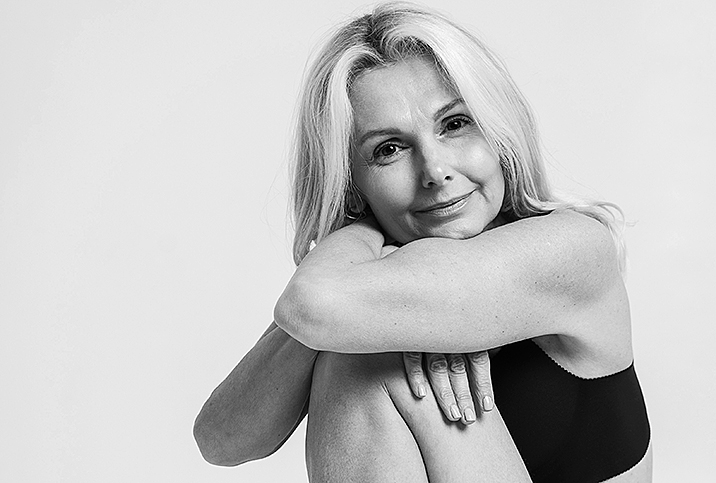Exercise Can Help Manage Uncomfortable Perimenopausal Symptoms

We know you're probably tired of hearing it, but exercise is good for you. Physical activity provides major physical and mental health benefits for people of all ages. For women approaching menopause, exercise is important to support heart and bone health.
Bone and cardiovascular health are particularly affected by this life stage, especially for women who experience menopause at an earlier age, according to a 2022 article published in Best Practice & Research Clinical Obstetrics & Gynaecology. The article indicated that hormone therapy, while a common menopause treatment, is insufficient to protect the bones and the heart.
The benefits of exercise
"Participating in appropriate weight-bearing, resistance/weight training and balance/posture exercises are recommended in bone health management in midlife women," said Anna Camille Moreno, D.O., a certified menopause practitioner and assistant professor of obstetrics and gynecology at Duke Health in Raleigh, North Carolina.
Research also suggests that exercise might help with managing perimenopausal symptoms, such as hot flashes and night sweats.
Women who were physically active during menopause reported improvements in these symptoms, as well as improved sleep, physical health and psychological well-being, according to a 2020 article published in BMC Women's Health. Perceived benefits were greater for women who had also experienced social support, which enhanced their ability to cope with menopausal symptoms.
Exercise also plays a central role in the prevention of future diseases.
"Observational studies have shown that engaging in physical activity may help protect [against] dementia," Moreno said. "Exercise has also been shown to help with chronic pain, osteoarthritis, mood and sleep disorders."
However, physical activity during menopause can bring additional challenges compared with other life stages because of the changes in estrogen and progesterone that occur.
"Estrogen and progesterone play important roles in muscle building," Moreno explained. "Estrogen, in particular, turns down the anabolic capacity of the muscle, which is also referred to as the 'growing phase.' Progesterone, on the contrary, turns up the catabolism or the breakdown of muscle tissue. This creates a more difficult time for our bodies to access branched-chain amino acids such as leucine, isoleucine and valine,which are all essential for maximizing muscle building."
Fortunately, some strategies can help mitigate this process.
"High protein intake is key before exercise and must be replaced within 30 minutes of exercise," Moreno advised. "The type and quality of the protein you eat are also essential for building lean muscle mass."
Creating the best exercise plan for yourself
Variety is essential to starting an exercise program during menopause.
"Women do best with a combination of cardio exercises like brisk walking, biking, swimming or dancing and strength training, including weights or body-weight exercises," said Jessica Pettigrew, M.S.N., C.N.M., a physician's assistant with the University of Colorado School of Medicine in Denver. "Programs that encourage flexibility like yoga and Pilates can also help prevent injuries and falls as women age."
Physical activity can also enhance social well-being. "Many women like doing group strength training or cardio classes for the peer support and friendships that can be built," she added.
Beginning an exercise regimen can be daunting, so working with an exercise professional can help put you at ease and ensure your program is well-balanced.
"Consider working with a personal trainer, especially if you are just starting out on your fitness journey," Pettigrew advised. "Trainers focus on good body mechanics and form prior to adding a lot of weight and motion to decrease the risk of injury."
Women do best with a combination of cardio exercises like brisk walking, biking, swimming or dancing and strength training, including weights or body-weight exercises.
Taking it slow and steady is vital.
"We often launch ourselves into programs without much consideration, and lack of enjoyment will only mean lack of consistency and motivation," said Kate Rowe-Ham, a level 3 certified personal trainer and menopause coach in Wivelsfield Green, England. "What I would advise is to listen to your body and let that be a guide as to the intensity of each session and always be kind to yourself."
Keeping the focus on physical and mental health, rather than weight, is also beneficial.
"I counsel my patients that while weight can increase in menopause, exercise is an essential part of healthy living at any life stage," Pettigrew said. "Regardless of numbers on the scale, exercise is always money in the bank; it is good for so many systems in the body-brain (mood, cognition), endocrine [hormone] function, maintaining mobility and decreased risk of cancer and chronic disease."
Despite the challenges, you can still make substantial improvements in your fitness level during this time.
"Menopause doesn't have to mean slowing down or stopping physical activity, endurance or high-intensity training," Moreno said. "The onset of menopause provides a unique opportunity to improve the quality of life of a woman and enhance her longevity by benefiting from the short-term and long-term health benefits of exercise."
Fundamentally, menopause does not have to be a barrier.
"I believe that every woman has the potential to be as strong and fit as the next person and that age doesn't determine your physical strength," Rowe-Ham said.




















